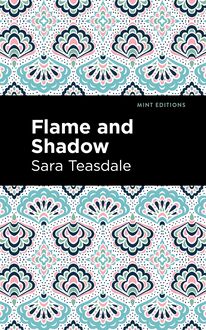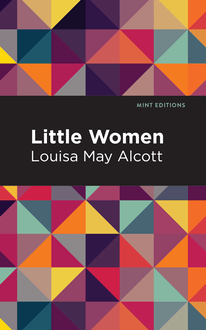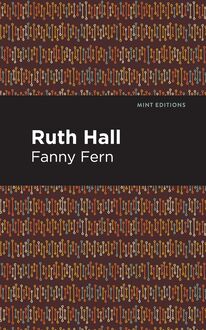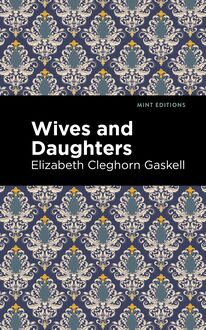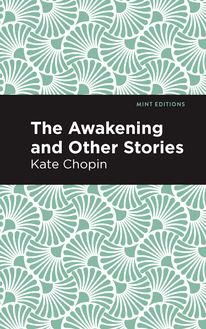-
 Univers
Univers
-
 Ebooks
Ebooks
-
 Livres audio
Livres audio
-
 Presse
Presse
-
 Podcasts
Podcasts
-
 BD
BD
-
 Documents
Documents
-
- Cours
- Révisions
- Ressources pédagogiques
- Sciences de l’éducation
- Manuels scolaires
- Langues
- Travaux de classe
- Annales de BEP
- Etudes supérieures
- Maternelle et primaire
- Fiches de lecture
- Orientation scolaire
- Méthodologie
- Corrigés de devoir
- Annales d’examens et concours
- Annales du bac
- Annales du brevet
- Rapports de stage
La lecture à portée de main
Vous pourrez modifier la taille du texte de cet ouvrage
Découvre YouScribe en t'inscrivant gratuitement
Je m'inscrisDécouvre YouScribe en t'inscrivant gratuitement
Je m'inscrisEn savoir plus
Vous pourrez modifier la taille du texte de cet ouvrage
En savoir plus

Description
Raised in a restrictive and oppressive household, Harriet Frean is used to sacrificing her own happiness and comfort for the sake of others, in fact, she’s proud of it. Taught that women were to be submissive, pious, kind, and quiet, Harriet molds herself into the perfect Victorian woman. Though she struggles with the crushing expectations of Victorian gender roles, Harriet finds comfort in her close relationship with Prissy, her best friend. As the two grow older, they conform to their expected mold. With Prissy’s support, Harriet continues her dedication to being the perfect woman, and is in pursuit of a husband. However, when Harriet finally falls in love, she is overcome by a crisis of conscious. Her entire perception of herself is shaken and her beliefs are challenged, because she has fallen for an unavailable man. Unsure how to process her feelings, Harriet begins to isolate herself in shame, because she cannot possibly tell anybody, not even Prissy, that she is in love with her best friend’s fiancé. Originally published under one-hundred years ago, May Sinclair’s Life and Death of Harriet Frean explores questionable ideals still present in modern society. With topics of romance, gender roles, and identity, Life and Death of Harriet Frean is both timeless and a perfect record of the harmful ideals of English Victorian society. As a pioneer of the stream-of-consciousness literary style, Sinclar’s prose is captivating and brilliant, allowing her characters to feel real and familiar to readers, creating a narrative that is undeniably compelling. This edition of Life and Death of Harriet Frean by May Sinclair now features an eye-catching new cover design and is printed in a font that is both modern and readable. With these accommodations, this edition of Life and Death of Harriet Frean creates an accessible and pleasant reading experience for modern audiences while restoring the original brilliance and insight of May Sinclair’s work.
Sujets
Informations
| Publié par | Mint Editions |
| Date de parution | 14 mai 2021 |
| Nombre de lectures | 0 |
| EAN13 | 9781513285825 |
| Langue | English |
| Poids de l'ouvrage | 2 Mo |
Informations légales : prix de location à la page 0,0300€. Cette information est donnée uniquement à titre indicatif conformément à la législation en vigueur.
Extrait
Life and Death of Harriett Frean
May Sinclair
Life and Death of Harriett Frean was first published in 1922.
This edition published by Mint Editions 2021.
ISBN 9781513280806 | E-ISBN 9781513285825
Published by Mint Editions®
minteditionbooks .com
Publishing Director: Jennifer Newens
Design & Production: Rachel Lopez Metzger
Project Manager: Micaela Clark
Typesetting: Westchester Publishing Services
C ONTENTS I II III IV V VI VII VIII IX X XI XII XIII XIV XV
I
“Pussycat, Pussycat, where have you been?”
“I’ve been to London, to see the Queen.”
“Pussycat, Pussycat, what did you there?”
“I caught a little mouse under the chair,”
Her mother said it three times. And each time the Baby Harriett laughed. The sound of her laugh was so funny that she laughed again at that; she kept on laughing, with shriller and shriller squeals.
“I wonder why she thinks it’s funny,” her mother said.
Her father considered it. “I don’t know. The cat perhaps. The cat and the Queen. But no; that isn’t funny.”
“She sees something in it we don’t see, bless her,” said her mother.
Each kissed her in turn, and the Baby Harriett stopped laughing suddenly.
“Mamma, did Pussycat see the Queen?”
“No,” said Mamma. “Just when the Queen was passing the little mouse came out of its hole and ran under the chair. That’s what Pussycat saw.”
Every evening before bedtime she said the same rhyme, and Harriett asked the same question.
When Nurse had gone she would lie still in her cot, waiting. The door would open, the big pointed shadow would move over the ceiling, the lattice shadow of the fireguard would fade and go away, and Mamma would come in carrying the lighted candle. Her face shone white between her long, hanging curls. She would stoop over the cot and lift Harriett up, and her face would be hidden in curls. That was the kiss-me-to-sleep kiss. And when she had gone Harriett lay still again, waiting. Presently Papa would come in, large and dark in the firelight. He stooped and she leapt up into his arms. That was the kiss-me-awake kiss; it was their secret.
Then they played. Papa was the Pussycat and she was the little mouse in her hole under the bed-clothes. They played till Papa said, “ No more!” and tucked the blankets tight in.
“Now you’re kissing like Mamma—”
Hours afterwards they would come again together and stoop over the cot and she wouldn’t see them; they would kiss her with soft, light kisses, and she wouldn’t know.
She thought: To-night I’ll stay awake and see them. But she never did. Only once she dreamed that she heard footsteps and saw the lighted candle, going out of the room; going, going away.
The blue egg stood on the marble top of the cabinet where you could see it from everywhere; it was supported by a gold waistband, by gold hoops and gold legs, and it wore a gold ball with a frill round it like a crown. You would never have guessed what was inside it. You touched a spring in its waistband and it flew open, and then it was a workbox. Gold scissors and thimble and stiletto sitting up in holes cut in white velvet.
The blue egg was the first thing she thought of when she came into the room. There was nothing like that in Connie Hancock’s Papa’s house. It belonged to Mamma.
Harriett thought: If only she could have a birthday and wake up and find that the blue egg belonged to her —
Ida, the wax doll, sat on the drawing-room sofa, dressed ready for the birthday. The darling had real person’s eyes made of glass, and real eyelashes and hair. Little finger and toenails were marked in the wax, and she smelt of the lavender her clothes were laid in.
But Emily, the new birthday doll, smelt of composition and of gum and hay; she had flat, painted hair and eyes, and a foolish look on her face, like Nurse’s aunt, Mrs. Spinker, when she said “Lawk-a-daisy!” Although Papa had given her Emily, she could never feel for her the real, loving love she felt for Ida.
And her mother had told her that she must lend Ida to Connie Hancock if Connie wanted her.
Mamma couldn’t see that such a thing was not possible.
“My darling, you mustn’t be selfish. You must do what your little guest wants.”
“I can’t.”
But she had to; and she was sent out of the room because she cried. It was much nicer upstairs in the nursery with Mimi, the Angora cat. Mimi knew that something sorrowful had happened. He sat still, just lifting the root of his tail as you stroked him. If only she could have stayed there with Mimi; but in the end she had to go back to the drawing-room.
If only she could have told Mamma what it felt like to see Connie with Ida in her arms, squeezing her tight to her chest and patting her as if Ida had been her child. She kept on saying to herself that Mamma didn’t know; she didn’t know what she had done. And when it was all over she took the wax doll and put her in the long narrow box she had come in, and buried her in the bottom drawer in the spare-room wardrobe. She thought: If I can’t have her to myself I won’t have her at all. I’ve got Emily. I shall just have to pretend she’s not an idiot.
She pretended Ida was dead; lying in her pasteboard coffin and buried in the wardrobe cemetery.
It was hard work pretending that Emily didn’t look like Mrs. Spinker.
II
She had a belief that her father’s house was nicer than other people’s houses. It stood off from the high road, in Black’s Lane, at the head of the town. You came to it by a row of tall elms standing up along Mr. Hancock’s wall. Behind the last tree its slender white end went straight up from the pavement, hanging out a green balcony like a bird cage above the green door.
The lane turned sharp there and went on, and the long brown garden wall went with it. Behind the wall the lawn flowed down from the white house and the green veranda to the cedar tree at the bottom. Beyond the lawn was the kitchen garden, and beyond the kitchen garden the orchard; little crippled apple trees bending down in the long grass.
She was glad to come back to the house after the walk with Eliza, the nurse, or Annie, the housemaid; to go through all the rooms looking for Mimi; looking for Mamma, telling her what had happened.
“Mamma, the red-haired woman in the sweetie shop has got a little baby, and its hair’s red, too… Some day I shall have a little baby. I shall dress him in a long gown—”
“Robe.”
“Robe, with bands of lace all down it, as long as that ; and a white christening cloak sewn with white roses. Won’t he look sweet?”
“Very sweet.”
“He shall have lots of hair. I shan’t love him if he hasn’t.”
“Oh, yes, you will.”
“No. He must have thick, flossy hair like Mimi, so that I can stroke him. Which would you rather have, a little girl or a little boy?”
“Well—what do you think—?”
“I think—perhaps I’d rather have a little girl.”
She would be like Mamma, and her little girl would be like herself. She couldn’t think of it any other way.
The school-treat was held in Mr. Hancock’s field. All afternoon she had been with the children, playing Oranges and lemons, A ring, a ring of roses, and Here we come gathering nuts in May, nuts in May, nuts in May: over and over again. And she had helped her mother to hand cake and buns at the infants’ table.
The guest-children’s tea was served last of all, up on the lawn under the immense, brown brick, many windowed house. There wasn’t room for everybody at the table, so the girls sat down first and the boys waited for their turn. Some of them were pushing and snatching.
She knew what she would have. She would begin with a bun, and go on through two sorts of jam to Madeira cake, and end with raspberries and cream. Or perhaps it would be safer to begin with raspberries and cream. She kept her face very still, so as not to look greedy, and tried not to stare at the Madeira cake lest people should see she was thinking of it. Mrs. Hancock had given her somebody else’s crumby plate. She thought: I’m not greedy. I’m really and truly hungry. She could draw herself in at the waist with a flat, exhausted feeling, like the two ends of a concertina coming together.
She was doing this when she saw her mother standing on the other side of the table, looking at her and making signs.
“If you’ve finished, Hatty, you’d better get up and let that little boy have something.”
They were all turning round and looking at her. And there was the crumby plate before her. They were thinking: “That greedy little girl has gone on and on eating.” She got up suddenly, not speaking, and left the table, the Madeira cake and the raspberries and cream. She could feel her skin all hot and wet with shame.
And now she was sitting up in the drawing-room at home. Her mother had brought her a piece of seed-cake and a cup of milk with the cream on it. Mamma’s soft eyes kissed her as they watched her eating her cake with short crumbly bites, like a little cat. Mamma’s eyes made her feel so good, so good.
“Why didn’t you tell me you hadn’t finished?”
“Finished? I hadn’t even begun.”
“Oh-h, darling, why didn’t you tell me?”
“Because I—I don’t know.”
“Well, I’m glad my little girl didn’t snatch and push. It’s better to go without than to take from other people. That’s ugly.”
Ugly. Being naughty was just that. Doing ugly things. Being good was being beautiful like Mamma. She wanted to be like her mother. Sitting up there and being good felt delicious. And the smooth cream with the milk running under it, thin and cold, was delicious too.
Suddenly a thought came rushing at her. There was God and there was Jesus. But even God and Jesus were not more beautiful than Mamma. They couldn’t be.
“You mustn’t say things like that, Hatty; you mustn’t, really. It might make something happen.”
“Oh, no, it won’t. You don’t suppose they’re listening all the time.”
Saying things like that made you feel good and at the same time naughty, which was more exciting than only being one or the other. But Mamma’s frightened face spoiled it. What did she think—what d
-
 Univers
Univers
-
 Ebooks
Ebooks
-
 Livres audio
Livres audio
-
 Presse
Presse
-
 Podcasts
Podcasts
-
 BD
BD
-
 Documents
Documents
-
Jeunesse
-
Littérature
-
Ressources professionnelles
-
Santé et bien-être
-
Savoirs
-
Education
-
Loisirs et hobbies
-
Art, musique et cinéma
-
Actualité et débat de société
-
Jeunesse
-
Littérature
-
Ressources professionnelles
-
Santé et bien-être
-
Savoirs
-
Education
-
Loisirs et hobbies
-
Art, musique et cinéma
-
Actualité et débat de société
-
Actualités
-
Lifestyle
-
Presse jeunesse
-
Presse professionnelle
-
Pratique
-
Presse sportive
-
Presse internationale
-
Culture & Médias
-
Action et Aventures
-
Science-fiction et Fantasy
-
Société
-
Jeunesse
-
Littérature
-
Ressources professionnelles
-
Santé et bien-être
-
Savoirs
-
Education
-
Loisirs et hobbies
-
Art, musique et cinéma
-
Actualité et débat de société
- Cours
- Révisions
- Ressources pédagogiques
- Sciences de l’éducation
- Manuels scolaires
- Langues
- Travaux de classe
- Annales de BEP
- Etudes supérieures
- Maternelle et primaire
- Fiches de lecture
- Orientation scolaire
- Méthodologie
- Corrigés de devoir
- Annales d’examens et concours
- Annales du bac
- Annales du brevet
- Rapports de stage


